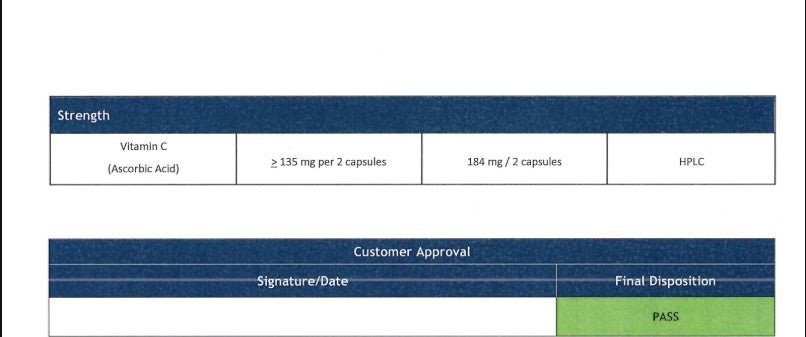Vitamin C (as Organic Alma Berry)
● May support immune, cardiovascular, skin, cognitive, fat burning, and digestive health (97, 98).
● May support immune health via increased oxidant, free radical scavenging, and fueling neutrophilic (immune cell) activity in chemotaxis, phagocytosis, and microbial killing (97,98).
● May support fat burning by increasing carnitine biosynthesis (molecule required for mitochondrial fatty acid oxidation) (97,98).
● May support accelerated bone healing after a fracture, increase type I collagen synthesis, and reduce oxidative stress (inflammation) (98).
● May support reduced DNA damage in the kidney, liver, and bone marrow (318).
Quercetin dihydrate
● May support antioxidant, anti-inflammatory, immune system defense, reduced homocysteine (allergies), reduced triglycerides and combats bacterial infections (114,115,116).
● May support immune health via reduced c-reactive protein (major inflammatory biomarker), increased neutrophil chemotaxis, macrophage phagocytosis, NK cell lytic activity and mitogen-stimulated lymphocyte (white blood cell) proliferation (114).
● May support antiviral and antibacterial activity in influenza A strains H1N1 (114).
Hesperidin
● May support potent cardio protective effects and protect the brain against various stressors through anti-oxidative mechanisms (400).
● May support a reduction in appetite and exhibit minor anti-allergic properties (400).
Cilantro
● May support reducing BMI, total cholesterol, triglycerides, and blood pressure in CVD patients (399).
● May support reducing BMI, total cholesterol, triglycerides, and blood pressure in CVD patients via regulatory effects on lipid metabolism, vasodilatory properties, and the activity enhancement of enzymes involved in HDL metabolism (399).
● May support antioxidant status via bioactive phenolic compounds (399).
Rose Hips
● May support weight loss via increases in whole body energy expenditure (EE) and browning of white adipose tissue (WAT) (398).
● May support cardiovascular health via reduced plasma glucose, cholesterol, and pancreatic beta-cell secretion of insulin (398).















